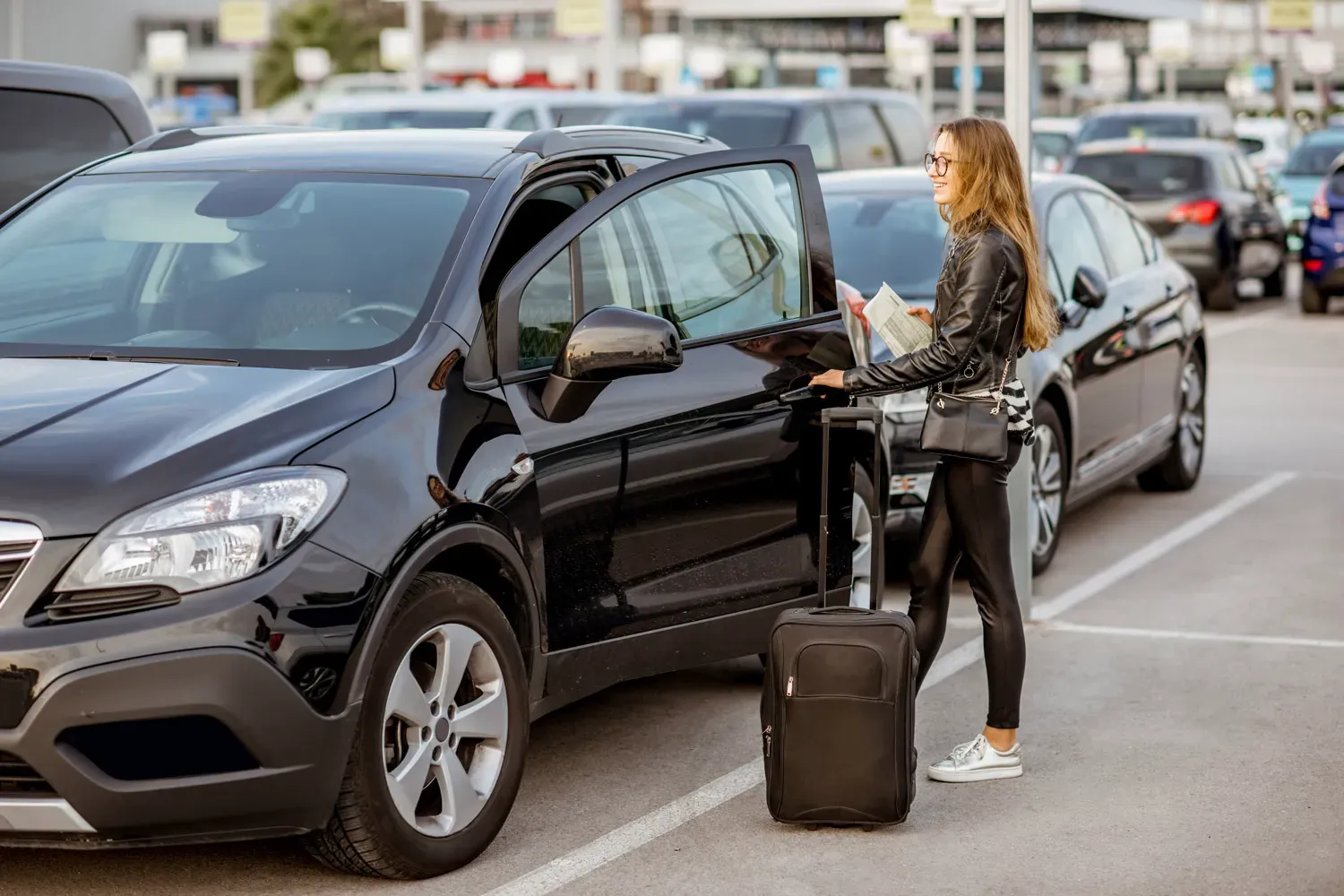
Discover the ins and outs of rental car insurance to ensure a smooth journey. This concise guide covers what rental car insurance entails, what it covers, and whether it's necessary. From exploring existing coverage to understanding rental policies, equip yourself with the knowledge to protect your travels wisely.
So often, we plan every detail of a trip, only to let rental car insurance become a game-time decision at the counter. Don’t hold up the line as you stand there wondering, “Can I rent a car without insurance?” Instead, a little advanced planning can help you answer the ultimate question: Is rental car insurance worth it?
It’s important to make sure you’re protected, of course, but the rental agency isn’t your only option. Learn whether your personal auto insurance policy gives you enough coverage, if you can count on the credit card you used to make the reservation, or if it might be a good idea to purchase that rental car insurance after all. And, if you decide you need to beef up your coverage, consider finding a credit union to discuss your car insurance options.
What is rental car insurance?
Rental car insurance protects you from paying for damage or losses if you have an incident while you’re renting a vehicle. It can cover:
- vehicle damage caused by a collision,
- medical bills resulting from accidents,
- theft of personal items from the vehicle,
- vandalism to the car, and more.
Rental car insurance isn’t the same as rental car reimbursement insurance, a benefit you can get with your standard car insurance policy. Reimbursement insurance helps cover the cost of renting a car so you can get where you need to go while your ride is repaired.
Depending on the coverage, rental car insurance typically costs anywhere from $20 to $60 per day. So, it won’t break the bank, but it probably cancels out that great rental discount you found online. And on longer trips, it can really add up — enough that you may wonder, can I rent a car without insurance?
In a word, yes. The law doesn’t require you to get insurance for your rental car, even if you don’t have an auto insurance policy for everyday life. Rental car companies carry minimal coverage for their vehicles — just enough to make them legal to drive. That basic insurance, however, protects them, not you.
Why do you need car insurance at all?
It’s worth taking a moment to explore why you need some form of car insurance, whether or not you supplement it with rental car insurance. Nearly all states require drivers to have auto insurance. But, even those that don’t still require drivers to have proof of financial responsibility should they cause an accident and need to pay damages.
The bottom line: If something happens while you’re renting a vehicle, you may be responsible for a whole lot of bills. So while the answer to the question, “Do I need rental car insurance?” is legal, “No,” it’s wise to explore your options, whether or not you buy what the guy at the rental counter is selling.
What does rental car insurance cover?
Coverage terms will differ depending on the policy and the state in which you’re renting, but rental car insurance options usually include:
- A loss damage waiver. Also known as a collision damage waiver, a loss damage waiver pays for repairs to the rental car. This waiver isn’t technically insurance but states that the company won’t make you pay for damage, theft, or vandalism to the vehicle. These waivers may exclude vulnerable areas like glass windshields, windows, and tires. Check the policy to ensure weather-related scratches, dents, and dings from private property accidents aren’t excluded. Most loss damage waivers cost between $10 and $25 per day.
- Liability protection. This covers the cost of damage to people, vehicles, and property if you cause an accident while driving the rental car. This protection can cost $7 to $15 per day.
- Personal accident insurance. Personal accident insurance pays for medical expenses if you or any passengers are injured in an accident while riding in your rental car. This insurance is often bundled with personal effects insurance for $5 to $15 per day.
- Personal effects insurance. This covers items like luggage, clothing, and some specialized gear if they are stolen from your rental car — or if your rental vehicle is stolen with items inside. Expensive items like high-end cameras and other electronics may not be included or fully covered. Standalone, this coverage costs between $1 and $5 per day. If you need more coverage for prized possessions, consider adding them to your homeowner’s or renter’s insurance policy.
- Roadside assistance coverage. If you lock yourself out of the car, wake up to a flat tire, or suffer basic mechanical problems, roadside assistance coverage bails you out. Some agencies charge a flat fee; others bill based on the situation.
When do I need rental car insurance?
Even though renting a car without insurance is legal, you shouldn’t leave yourself totally exposed. And in some cases — like if you’re traveling overseas — even the most expensive everyday insurance won’t protect you. Policies issued in the United States usually cover you in the 50 states and Canada. Still, they typically don’t apply in Mexico and beyond, so if you’re leaving the country, plan on getting insurance.
If you only pay for liability on your personal vehicle, check out rental policies that cover medical expenses for you and your passengers. Icy mountain roads, crowded tourist traps, and unfamiliar traffic patterns could put you at higher risk for mistakes behind the wheel. And remember that traditional health insurance plans may not cover all medical bills from accidents you cause.
Want to rent that sweet convertible you’ve always coveted? Consider getting the loss damage waiver or beefing up your personal policy. If you rent a luxury vehicle but don’t drive one regularly, your everyday insurance might not fully cover damage to a high-end ride. And if an accident would make your premiums unaffordable, buying separate rental coverage could save you money in the long run.
Coverage you may already have
Before you get talked into a policy at the counter, explore the protections you may already have:
- Your personal car insurance. The car insurance you are required to carry as a vehicle owner usually provides the same level of protection for a rental car — and for the same deductible, too. So if you have full coverage, like credit union car insurance, you’re probably set, unless you’re renting a luxury vehicle.
- Non-owner car insurance. This insurance usually covers damage and injuries from accidents that you cause, whether the car belongs to a friend, relative or rental agency. These policies are designed for those who drive regularly but don’t own a vehicle. You may still need coverage for the rental car and your own injuries.
- Your personal health insurance. Health insurance will cover the treatment of vehicle-related injuries in emergencies. But if you need follow-up visits, coverage can get complicated — and differs from state to state. Unlike policies designed for car accidents, personal health insurance could leave you responsible for deductibles and other out-of-pocket costs. Your health insurer might be legally entitled to any accident-related medical reimbursements, so checking the fine print upfront is wise.
- Your homeowners or renters insurance. These policies probably protect your personal belongings if they are stolen from your rental car. However, you may need to get special coverage for things like cameras and high-end electronics.
- Your credit card. Credit cards often include excellent rental car coverage if you use the credit card to book the rental. Most cover collision damage, injury, death and dismemberment, personal property damage, and more. If you go this route, it’s important to decline the rental agency’s loss damage waiver (also known as collision damage waiver), or the credit card company won’t pay a dime. Credit cards may not cover rental periods longer than 15 days, so check if you plan an extended trip.
- Travel insurance. This type of insurance usually covers collision damage to a rental vehicle, although it probably won’t pay for belongings inside the car or any injuries from the accident.
Further resources on rental car insurance
Looking for more information about the overall car rental process? Check out these resources:
- Prep for unfamiliar locations. If you plan to drive while overseas, know that some countries require insurance, permits, or specialized paperwork. Before you leave, make sure you’re familiar with the laws governing driving and road safety in your destination country.
- Consider your age. If you’re under 25, rental car insurance won’t be your only sticker shock. Most rental car companies tack on a fee of $30-$60 per day for younger drivers, but those who are AAA members or have military ties and belong to USAA can get those fees waived at many rental agencies.
- Plan for contingencies. As toll roads increasingly go cashless, rental car agencies are finding ways to streamline payments for out-of-state customers. But not all are helpful—or even very accurate. Consider bringing your transponder and planning ahead by researching the brands each state accepts.
Protect your wallet, not their bottom line
Once you’ve explored your plans and existing coverage, you may decide that rental car insurance is unnecessary or, conversely, a valuable addition to your trip. For additional support, find a credit union near you to speak to an unbiased expert.
Did you know?
Many credit unions offer access to discounted car insurance as a benefit of membership, along with lower fees and a number of other advantages. While banks answer to their shareholders, credit unions are owned by their members, so they’re driven to serve their customers rather than the bottom line.
